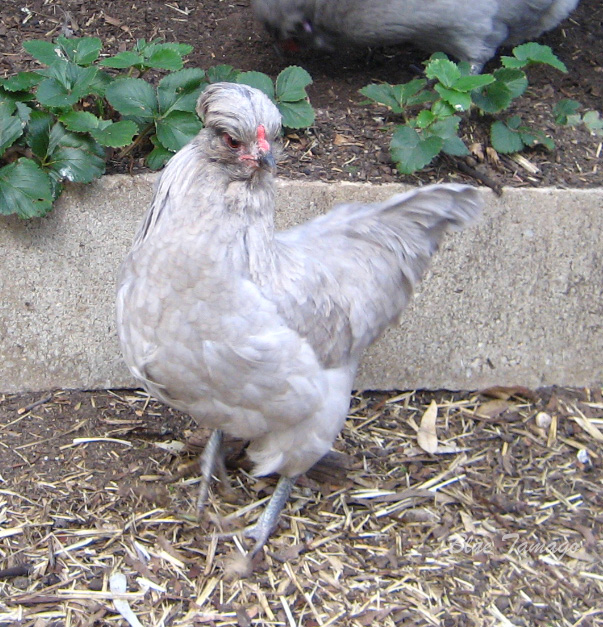Farewell Pippy
Today we sadly farewell Pippy.
Before winter, she came down with a respiratory infection and spent a week in emergency care at the vet. She improved dramatically during that week at the vet and was discharged. We were told to keep her warm and dry, so she spent the rest of winter inside the house with us.
I was actually a bit surprised after her vet discharge that she was to have no further medication. I would have thought a longer course of antibiotics would be needed, especially for an infection. Anyway, she seemed content in here and didn't show any gumption to leaving her warm cage. She was on a crumble diet as I noticed she was an extremely fussy eater. She would only pick the corn out of the feeder and eat that. I thought she needed more nutrients in her diet and provided her with only the crumble, which she ate since there was nothing else.
Then hubby (who was away overseas) came back and wanted to give her a "treat", with a bowl full of grains, including her beloved corn. Well guess what, she never touched the crumble again! What is it with men? Plus he seems to think that each chicken can eat as much as he can! Is that a man thing?!?
Anyway, in spring, when the weather warmed up, we let her out to be with the others again. She was eating and drinking fine and we let her roam around in the sun.
She spent the nights in the nest box and spent the day roaming around. She has never been a sociable chicken, not with humans or with the other chickens. She only likes having DumDum around, and that is only to beat her up! The moment she sees DumDum around, she runs up and starts pecking her!
She was doing this on the weekend and so it was to our surprise that during the week, she suddenly appeared listless. She was back inside the house again with Sulfa3 in her water. Sulfa3 is a medication that you can get in grain stores for respiratory diseases. The one telling sign of a respiratory disease with her was the presence of bubbly eye. Sulfoamides do not kill bacteria, but are bacteriostatic, preventing
them from metabolising and multiplying. It is eliminated from the body
slowly, which is good for a chronic infection.
I did some research and bubbly eye was an indicator of a mycoplasma infection. This is BAD news as potentially all our chickens would have it. So far the rest seem asymptomatic (not showing any clinical signs of it), fingers crossed it stays that way. Mycoplasma is a type of bacteria that lacks a cell wall, and so normal penicillin-like antibiotics have no effect on it (penicillin disrupts the cell wall barrier). During that week we had a couple of hot days, followed by cold wet days,
followed by hot days. I'm not sure if the changing weather contributed
to her illness.
She was taken to the vet and returned home the same day with a dose of antibiotics. We had mix it up with water and introduce it orally. The antibiotic prescribed was lincomycin based, a pretty powerful antibiotic (prevents protein synthesis, so basically metabolic activity). After 3 days of this, she did not seem any better, in fact she seemed worse. She was losing her balance, not eating or drinking. So she was taken to the vet again and admitted. She died during the night there.
I wanted an autopsy/necropsy done so we would know what was the cause. Unfortunately, the staff placed Pippy in the freezer, rendering her unsuitable for an autopsy or for serology. I have to say, that I probably will not be going back to that vet any longer. He prescribed the antibiotics with little examination, no swabs or samples taken for pathology. According to the vet, she died of "complications due to chronic respiratory disease". The vet did tell us (after her first visit before winter) that she would probably need a hysterectomy. At the time I was wondering what that had to do with her illness. Thinking on it now, Pippy has not laid an egg since autumn 2014, so over a year. At first we thought it was just due to the moulting process, no eggs during a moult, but she just never laid again. Maybe she did have a reproductive problem that was impacting on her health systemically. We will never know.
We will be on the lookout for listless chickens. It was unfortunate that Pippy was very antisocial and it was our fault for not taking that much notice in her. Our other hens are generally very nosy and like to come up to us to "sticky beak" and see what we are doing. This is a lesson learned for us.
Some photos of Pippy
 | |
| Penguin "wing dancing" for her as she recuperated throughout winter. She looks very thin here as she never grew back the feathers that she moulted in autumn |
 |
| Just before she started moulting |
 |
| Pippy just after Penguin was hatched. Looking sleek with a well styled bouffant. |
References
Sulfonamides and sulfonamide combinations, Merck Vet Manual, 2012
Avian Mycoplasmosis (mycoplasma gallisepticum), Merck Vet Manual, 2007





Comments
Post a Comment